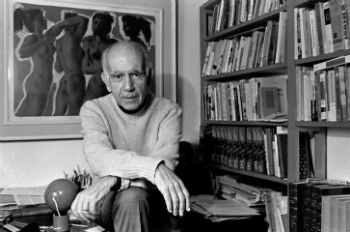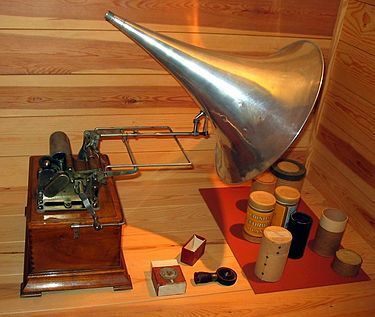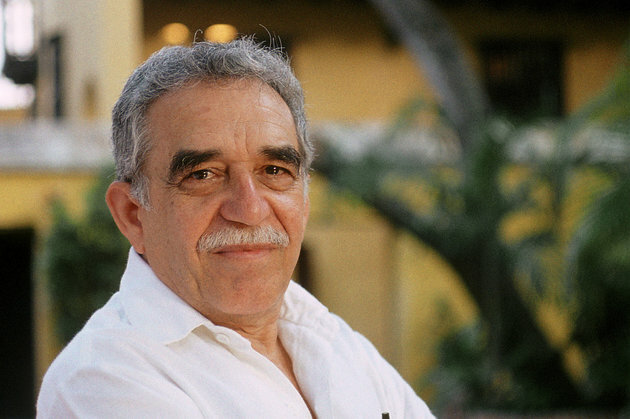Érico Verissimo (1905-1975) was a Brazilian writer of the second modernist phase, called the consolidation phase.
Considered one of the most important writers of the 20th century, he received several awards including:
- "Prêmio Machado de Assis" (1954), awarded by the Brazilian Academy of Letters;
- "Prêmio Jabuti" (most important literary prize in Brazil), received in 1965, for the novel “the ambassador”.
Biography of Érico Veríssimo
Érico Lopes Veríssimo was born in the interior of Rio Grande do Sul, in the city of Cruz Alta, on December 17, 1905.
His parents, Sebastião Veríssimo da Fonseca and Abegahy Lopes, came from a wealthy and traditional family. However, they lost much of their property, which is why Erico began working in his youth to help his family.
His interest in literature was already clear. He even read several Brazilian classics such as: Aluísio de Azevedo, Joaquim Manoel de Macedo, Euclides da Cunha, Monteiro Lobato, Coelho Neto, Oswald de Andrade and Mario de Andrade.
He was also a reader of foreign writers such as Leon Tolstoi, Balzac, Proust, Émile Zola, Dostoievski, Oscar Wilde, Friedrich Nietzsche, Aldous Huxley and Eça de Queirós.
He studied at Colégio Elementar Venâncio Aires and, in 1920, moved to Porto Alegre. In the capital, he was enrolled in the Colégio Interno Protestante Cruzeiro do Sul.
The separation from his parents, in 1922, led him to work from an early age as a clerk at an insurance company and later at the Banco Nacional do Comércio.
Back in his hometown, he became a partner with a family friend at Pharmacia Central in 1926. However, the local business went bankrupt in 1930, a crucial moment to boost his literary career. That's because he decides to return to Porto Alegre and live off his writings.

At that time, he became involved with renowned writers, being hired to fill the position of editorial secretary of “Revista do Globo”.
Later, he was promoted director of the magazine and appointed as manager of the editorial department of “Livraria do Globo”.
In addition, he contributed to the newspapers “Diário de Notícias”, “Correio do Povo” and was elected president of the Associação Rio-Grandense de Imprensa.
In 1931 he married Mafalda Halfen Volpe with whom he had two children: Clarissa and Luís Fernando.
Faced with the censorship imposed by the Estado Novo in the early 1940s, he moved to the United States. There, he began teaching Literature and History of Brazil (1943-1945) at Mills College in Oakland, California.
From that institution he received the title Doctor Honoris Causa in 1944. In 1953, he held the post of Director of the Department of Cultural Affairs of the Pan American Union in Washington, where he remained until 1956.
Érico died on November 29, 1975, aged 69, in Porto Alegre, victim of a heart attack.
Main works by Érico Veríssimo
Érico Veríssimo has a vast body of work, including short stories, novels, novels, essays, children's literature, biographies, autobiographies and translations.
Some researchers claim that his work can be divided into three phases: urban novel, historical novel and political novel.
Check out his main works below:
- Puppets (1932)
- Clarissa (1933)
- The Life of Joan of Arc (1935)
- Music from afar (1935)
- The Adventures of the Red Airplane (1936)
- A place in the sun (1936)
- Look at the Lilies of the Field (1938)
- The Bear with Music in His Belly (1938)
- Saga (1940)
- Black Cat in Snow Field (1941)
- The Hands of My Son (1942)
- The Rest is Silence (1943)
- The Return of the Black Cat (1946)
- O Tempo eo Vento – 3 volumes (Vol. I “The Continent” (1948), Vol. II “The portrait” (1951) and Vol. III "The archipelago" (1961))
- Night (1954)
- People and Animals (1956)
- The Writer in the Mirror (1956)
- The Ambassador (1965)
- The Prisoner (1967)
- Incident in Antares (1971)
Quotes by Érico Veríssimo
- “We are all a mystery to others... and for ourselves.”
- “life begins every day.”
- “When the winds of change blow, some people erect barriers, others build windmills.”
- “In my opinion there are two types of travelers: those who travel to escape and those who travel to seek.”
- “No writer can create from nothing. Even when he doesn't know, he is using experiences lived, read or heard, and even sensed by a kind of sixth sense.”
- “Usually when I finish a book I find myself in a confusion of feelings, a mixture of joy, relief and vague sadness. Rereading the work later, I almost always think 'That's not quite what I meant'.”
Curiosities
- When he was 4 years old, Érico almost died of meningitis, aggravated by bronchopneumonia.
- In the mid-30s, Érico Veríssimo created a children's auditorium program called “Clube dos Três Porquinhos” on Rádio Farroupilha. However, he decides to terminate the program due to censorship. This is because the DIP (Department of Press and Propaganda of the Estado Novo), required that the writer previously submit to that body the stories presented in the radio program.
- The novel written in 1943, “the rest is silence” reports the suicide of a woman who throws herself from the tenth floor. The choice of theme was based on a true story, of which he and his brother Ênio were witnesses, while they were talking in a square in Porto Alegre.
- In 1969, the house where he lived in Cruz Alta became the “Museu Casa de Érico Veríssimo”.
- His son, Luís Fernando Veríssimo, followed in his father's footsteps and became an important Brazilian writer, which stands out for his humorous works such as “O Analista de Bagé” (1981) and “Comédias da Vida Privada” (1994).
- Some of his works have been adapted for film and television, for example, his work “Look at the lirios do campo” which, under the direction of Herval Rossano, was a soap opera presented by TV Globo, in 1980. Furthermore, his trilogy “O tempo eo vento” became a television series, presented by Rede Globo in 1985, under the direction of Paulo José.
Read too:
- Modernism in Brazil
- The Language of Modernism
- Second Generation Modernist
- Authors of the Second Phase of Modernism in Brazil



